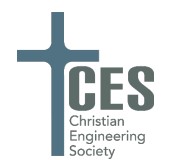Document Type
Paper
Abstract
Training engineering students is challenging, and this challenge is reflected on both the student and teacher side of the learning relationship. The National Academy of Sciences (2018) has concluded that “engineering education must continuously adapt,” and identified several shortcomings of the current engineering education paradigm. Students and teachers should both ask “What is the purpose and what are the desired outcomes of an engineering education?” Furthermore, this basic question is being asked in the midst of an environment in western culture with measured declines in interpersonal connection and corresponding increases in anxiety, depression, loneliness and despair (CDC Youth Risk Behavior Survey, Harvard Study of Adult Development).
The paper outlines a model for educating engineers that addresses these issues and frames them across the three key areas that should be developed for a modern engineer: a strong technical foundation, a varied and comprehensive exploration of those skills necessary to build relationships with other people (e.g. communication, leadership, grit, motivation, ethics, etc.), and finally an appreciation for the meaning and purpose behind engineering and design decision making.
The authors make an argument for the importance of the Christian faith in the development of engineers and the practice of engineering, positing that the Christian faith provides a framework for the discipline's meaning and purpose and that without these, technical and relationship skills cannot be properly developed. The model is grounded both in the grand narrative of Scripture and in teaching and learning theory.
Creative Commons License

This work is licensed under a Creative Commons Attribution-Noncommercial-No Derivative Works 4.0 License.
Copyright
© 2024 Michael J. McGinnis. All rights reserved.
Engineering, Meaning and Faith: Professional Formation of Engineers with Magnitude and Direction
Training engineering students is challenging, and this challenge is reflected on both the student and teacher side of the learning relationship. The National Academy of Sciences (2018) has concluded that “engineering education must continuously adapt,” and identified several shortcomings of the current engineering education paradigm. Students and teachers should both ask “What is the purpose and what are the desired outcomes of an engineering education?” Furthermore, this basic question is being asked in the midst of an environment in western culture with measured declines in interpersonal connection and corresponding increases in anxiety, depression, loneliness and despair (CDC Youth Risk Behavior Survey, Harvard Study of Adult Development).
The paper outlines a model for educating engineers that addresses these issues and frames them across the three key areas that should be developed for a modern engineer: a strong technical foundation, a varied and comprehensive exploration of those skills necessary to build relationships with other people (e.g. communication, leadership, grit, motivation, ethics, etc.), and finally an appreciation for the meaning and purpose behind engineering and design decision making.
The authors make an argument for the importance of the Christian faith in the development of engineers and the practice of engineering, positing that the Christian faith provides a framework for the discipline's meaning and purpose and that without these, technical and relationship skills cannot be properly developed. The model is grounded both in the grand narrative of Scripture and in teaching and learning theory.

